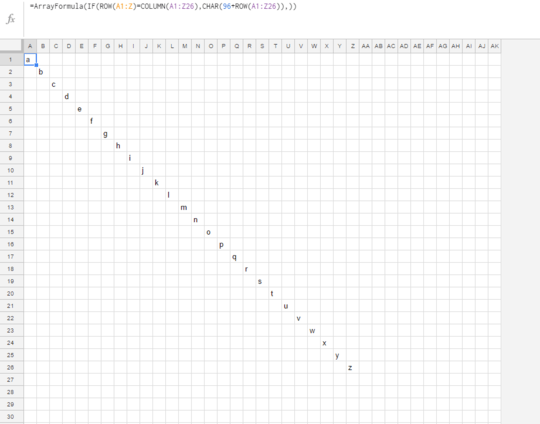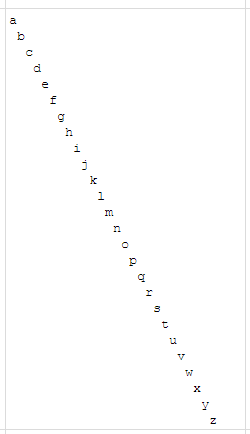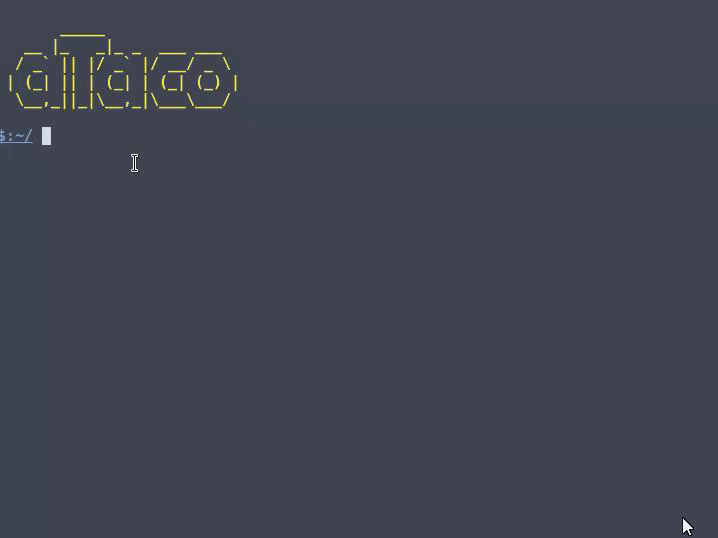67
9
Given no input, your task is to generate the following:
a
b
c
d
e
f
g
h
i
j
k
l
m
n
o
p
q
r
s
t
u
v
w
x
y
z
Nonvisually, your task is to generate each letter in the alphabet, with spaces before it equal to its position in the alphabet minus one.
If you print this, it must appear like the above. Extraneous whitespace that does not affect appearance, as well as a trailing newline, is allowed. You can use all lowercase, or all uppercase.
You may also return this from a function as per usual rules, either as a string with newlines, or a list of strings.
This is code-golf, so shortest answer in bytes wins!



Do the spaces need to be real ASCII spaces, or can I give output like
a<VERTICAL-TAB>b<VERTICAL-TAB>c...? How about if there are some backspace characters in there too? As long as the visual result is the same? – Digital Trauma – 2017-06-08T23:30:08.280@DigitalTrauma as long as it appears the same, I don't care what kind of whitespace you use. – Stephen – 2017-06-08T23:31:43.877
Can I use tabs instead of spaces? – None – 2017-06-09T23:28:10.500
@yamboy1 hmm, probably not. Most tabs are set to a large number of spaces - if your diagonal looks like it has
4spaces before theb, it won't look very diagonal. If it looks like the slope is ~-1then it's fine. – Stephen – 2017-06-09T23:32:52.520does not affecting appearance include having an extra leading space or 2? – MildlyMilquetoast – 2017-09-11T17:08:17.200
@MistahFiggins sure, as long as they are on every line – Stephen – 2017-09-11T17:12:16.403